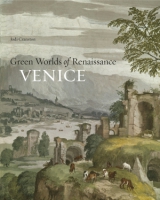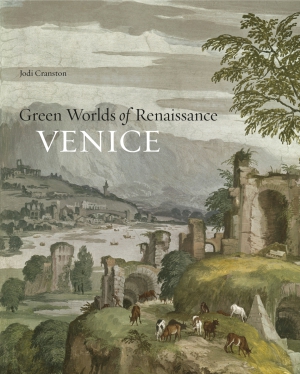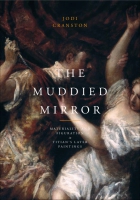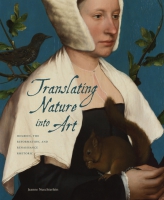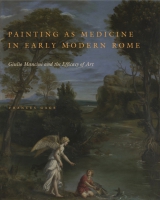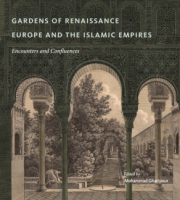Green Worlds of Renaissance Venice
Jodi Cranston
Winner of the 2021 Gladys Krieble Delmas Foundation Book Prize in Renaissance Venetian Studies from the Renaissance Society of America“This wide-ranging exploration of the green world, pastoral, or ‘second nature’ of Venice helps rethink the complex and intricate world of pastoral, its production, and its experience. From palace and villa gardens to paintings, eclogues and plays, and sculptural figures, Jodi Cranston sets out the fictional and the actual modes of pastoralism in the light of both contemporary writers and modern critics who have extended their versions of pastoral.”
- Description
- Reviews
- Bio
- Subjects
Drawing on a variety of primary sources ranging from visual art to literary texts, performances, and urban plans, Jodi Cranston shows how Venetians lived the pastoral in urban Venice. She describes how they created green spaces and enacted pastoral situations through poetic conversations and theatrical performances in lagoon gardens; discusses the island utopias found, invented, and mapped in distant seas; and explores the visual art that facilitated the experience of inhabiting verdant landscapes. Though the greening of Venice was relatively short lived, Cranston shows how the phenomenon had a lasting impact on how other cities, including Paris and London, developed their self-images and how later writers and artists understood and adapted the pastoral mode.
Incorporating approaches from eco-criticism and anthropology, Green Worlds of Renaissance Venice greatly informs our understanding of the origins and development of the pastoral in art history and literature as well as the culture of sixteenth-century Venice. It will appeal to scholars and enthusiasts of sixteenth-century history and culture, the history of urban landscapes, and Italian art.
“This wide-ranging exploration of the green world, pastoral, or ‘second nature’ of Venice helps rethink the complex and intricate world of pastoral, its production, and its experience. From palace and villa gardens to paintings, eclogues and plays, and sculptural figures, Jodi Cranston sets out the fictional and the actual modes of pastoralism in the light of both contemporary writers and modern critics who have extended their versions of pastoral.”
“With elegant concision, Jodi Cranston shows how artists of different facture configured the proximities of urban and green worlds in and about Venice in the quattrocento and cinquecento. Casting an informed and inspired gaze on gardens, landscapes, pastoral and elegiac poetry, vedute, city views, and illustrated books, she reconsiders how Venice led artists to depict and even internalize tensions and shifting lines of division between city, country, and the world at large. Exhaustively researched, Green Worlds is a major contribution both to early modern studies and to a burgeoning and much-needed field of cultural ecology.”
“This rich and illuminating study bridges a gap in the art-historical scholarship, namely, that of a comprehensive treatment of early Italian pastoral painting that takes into its purview complex associations between and among geographical localities, pastoral poetry, painting, sculpture, and, importantly, both imagined and real green spaces. Cranston’s original and valid insights emerge in every chapter; her range of reference earns her the reader’s confidence, while her handling of the various motives and interpretations of the elusive pastoral ‘mode’ is creative, subtle, and, ultimately, convincing.”
“This wide-ranging book, which is Cranston’s third, combines art history, literary theory, and cultural geography to provide a fresh take on the importance of green spaces and the pastoral mode in Renaissance Venice.”
Jodi Cranston is Professor of the History of Art at Boston University. She is the author of The Muddied Mirror: Materiality and Figuration in Titian’s Later Paintings, also published by Penn State University Press.
Also of Interest
Mailing List
Subscribe to our mailing list and be notified about new titles, journals and catalogs.
